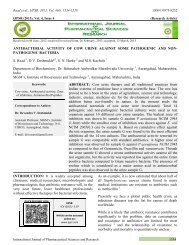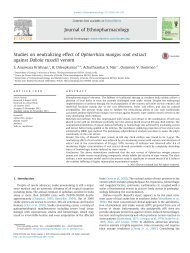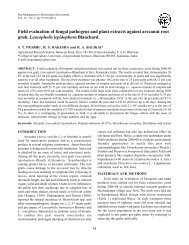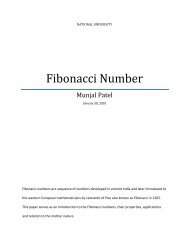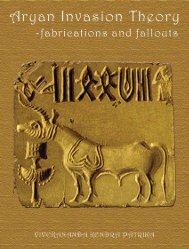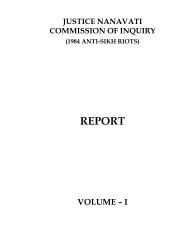- Page 1:
Good Practices and Innovations in P
- Page 4 and 5:
DESA MISSION STATEMENT The Departme
- Page 6 and 7:
Good Practices and InnovATIONS in P
- Page 8 and 9:
Good Practices and InnovATIONS in P
- Page 10 and 11:
Good Practices and InnovATIONS in P
- Page 12 and 13:
Good Practices and InnovATIONS in P
- Page 14 and 15:
Good Practices and InnovATIONS in P
- Page 16 and 17:
Good Practices and InnovATIONS in P
- Page 18 and 19:
Good Practices and InnovATIONS in P
- Page 20 and 21:
Good Practices and InnovATIONS in P
- Page 22 and 23:
Good Practices and InnovATIONS in P
- Page 24 and 25:
Good Practices and InnovATIONS in P
- Page 26 and 27:
Good Practices and InnovATIONS in P
- Page 28 and 29:
Good Practices and InnovATIONS in P
- Page 30 and 31:
Good Practices and InnovATIONS in P
- Page 32 and 33:
Good Practices and InnovATIONS in P
- Page 34 and 35:
Good Practices and InnovATIONS in P
- Page 36 and 37:
Good Practices and InnovATIONS in P
- Page 38 and 39:
Good Practices and InnovATIONS in P
- Page 40 and 41:
Good Practices and InnovATIONS in P
- Page 42 and 43:
Graph 4: United Nations Public Serv
- Page 44 and 45:
Good Practices and InnovATIONS in P
- Page 46 and 47:
Good Practices and InnovATIONS in P
- Page 48 and 49:
Good Practices and InnovATIONS in P
- Page 50 and 51:
Good Practices and InnovATIONS in P
- Page 52 and 53:
Good Practices and InnovATIONS in P
- Page 54 and 55:
Good Practices and InnovATIONS in P
- Page 56 and 57:
Good Practices and InnovATIONS in P
- Page 58 and 59:
Good Practices and InnovATIONS in P
- Page 60 and 61:
Good Practices and InnovATIONS in P
- Page 62 and 63:
Good Practices and InnovATIONS in P
- Page 64 and 65:
Good Practices and InnovATIONS in P
- Page 66 and 67:
Good Practices and InnovATIONS in P
- Page 68 and 69:
Good Practices and InnovATIONS in P
- Page 70 and 71:
Good Practices and InnovATIONS in P
- Page 72 and 73:
Good Practices and InnovATIONS in P
- Page 74 and 75:
Good Practices and InnovATIONS in P
- Page 76 and 77:
Good Practices and InnovATIONS in P
- Page 78 and 79:
Good Practices and InnovATIONS in P
- Page 80 and 81:
Good Practices and InnovATIONS in P
- Page 82 and 83:
Good Practices and InnovATIONS in P
- Page 84 and 85:
Good Practices and InnovATIONS in P
- Page 86 and 87:
Good Practices and InnovATIONS in P
- Page 88 and 89:
Good Practices and InnovATIONS in P
- Page 90 and 91:
Good Practices and InnovATIONS in P
- Page 92 and 93:
Good Practices and InnovATIONS in P
- Page 94 and 95:
Good Practices and InnovATIONS in P
- Page 96 and 97:
Good Practices and InnovATIONS in P
- Page 98 and 99:
Good Practices and InnovATIONS in P
- Page 100 and 101:
Good Practices and InnovATIONS in P
- Page 102 and 103:
Good Practices and InnovATIONS in P
- Page 104 and 105:
Good Practices and InnovATIONS in P
- Page 106 and 107:
Good Practices and InnovATIONS in P
- Page 108 and 109:
Good Practices and InnovATIONS in P
- Page 110 and 111:
Good Practices and InnovATIONS in P
- Page 112 and 113:
Good Practices and InnovATIONS in P
- Page 114 and 115:
Good Practices and InnovATIONS in P
- Page 116 and 117:
Good Practices and InnovATIONS in P
- Page 118 and 119:
Good Practices and InnovATIONS in P
- Page 120 and 121:
Good Practices and InnovATIONS in P
- Page 122 and 123:
Good Practices and InnovATIONS in P
- Page 124 and 125:
Good Practices and InnovATIONS in P
- Page 126 and 127:
Good Practices and InnovATIONS in P
- Page 128 and 129:
Good Practices and InnovATIONS in P
- Page 130 and 131:
Good Practices and InnovATIONS in P
- Page 132 and 133:
Good Practices and InnovATIONS in P
- Page 134 and 135:
Good Practices and InnovATIONS in P
- Page 136 and 137:
Good Practices and InnovATIONS in P
- Page 138 and 139:
Good Practices and InnovATIONS in P
- Page 140 and 141:
Good Practices and InnovATIONS in P
- Page 142 and 143:
Good Practices and InnovATIONS in P
- Page 144 and 145:
Good Practices and InnovATIONS in P
- Page 146 and 147:
Good Practices and InnovATIONS in P
- Page 148 and 149:
Good Practices and InnovATIONS in P
- Page 150 and 151:
Good Practices and InnovATIONS in P
- Page 152 and 153:
Good Practices and InnovATIONS in P
- Page 154 and 155:
Good Practices and InnovATIONS in P
- Page 156 and 157:
Good Practices and InnovATIONS in P
- Page 158 and 159:
Good Practices and InnovATIONS in P
- Page 160 and 161:
Good Practices and InnovATIONS in P
- Page 162 and 163:
Good Practices and InnovATIONS in P
- Page 164 and 165:
Good Practices and InnovATIONS in P
- Page 166 and 167: Good Practices and InnovATIONS in P
- Page 168 and 169: Good Practices and InnovATIONS in P
- Page 170 and 171: Good Practices and InnovATIONS in P
- Page 172 and 173: Good Practices and InnovATIONS in P
- Page 174 and 175: Good Practices and InnovATIONS in P
- Page 176 and 177: Good Practices and InnovATIONS in P
- Page 178 and 179: Good Practices and InnovATIONS in P
- Page 180 and 181: Good Practices and InnovATIONS in P
- Page 182 and 183: Good Practices and InnovATIONS in P
- Page 184 and 185: Good Practices and InnovATIONS in P
- Page 186 and 187: Good Practices and InnovATIONS in P
- Page 188 and 189: Good Practices and InnovATIONS in P
- Page 190 and 191: Good Practices and InnovATIONS in P
- Page 192 and 193: Good Practices and InnovATIONS in P
- Page 194 and 195: Good Practices and InnovATIONS in P
- Page 197 and 198: 2009 United Nations Public Service
- Page 199 and 200: 2009 Category 1: republic of Korea
- Page 201 and 202: 2009 Category 1: Sweden Europe and
- Page 203 and 204: 2009 Category 2: South Africa Afric
- Page 205 and 206: 2009 Category 2: Thailand Asia and
- Page 207 and 208: 2009 Category 2: Egypt Western Asia
- Page 209 and 210: Good Practices and InnovATIONS in P
- Page 211 and 212: 2009 Category 3: Republic of Korea
- Page 213: 2009 Category 4: Poland Europe and
- Page 218 and 219: Good Practices and InnovATIONS in P
- Page 220 and 221: Good Practices and InnovATIONS in P
- Page 222 and 223: Good Practices and InnovATIONS in P
- Page 224 and 225: Good Practices and InnovATIONS in P
- Page 226 and 227: Good Practices and InnovATIONS in P
- Page 228 and 229: Good Practices and InnovATIONS in P
- Page 230 and 231: Good Practices and InnovATIONS in P
- Page 232 and 233: Good Practices and InnovATIONS in P
- Page 234 and 235: Good Practices and InnovATIONS in P
- Page 236 and 237: Good Practices and InnovATIONS in P
- Page 238 and 239: Good Practices and InnovATIONS in P
- Page 240 and 241: Good Practices and InnovATIONS in P
- Page 242 and 243: Good Practices and InnovATIONS in P
- Page 244 and 245: Good Practices and InnovATIONS in P
- Page 246 and 247: Good Practices and InnovATIONS in P
- Page 248 and 249: Good Practices and InnovATIONS in P
- Page 250 and 251: Good Practices and InnovATIONS in P
- Page 252 and 253: Good Practices and InnovATIONS in P
- Page 254 and 255: Good Practices and InnovATIONS in P
- Page 256 and 257: Good Practices and InnovATIONS in P
- Page 258 and 259: Good Practices and InnovATIONS in P
- Page 260 and 261: Good Practices and InnovATIONS in P
- Page 262 and 263: Good Practices and InnovATIONS in P
- Page 264 and 265: Good Practices and InnovATIONS in P
- Page 266 and 267:
Good Practices and InnovATIONS in P
- Page 268 and 269:
Good Practices and InnovATIONS in P
- Page 270 and 271:
Good Practices and InnovATIONS in P
- Page 272 and 273:
Good Practices and InnovATIONS in P
- Page 274 and 275:
Good Practices and InnovATIONS in P
- Page 276 and 277:
Good Practices and InnovATIONS in P
- Page 278 and 279:
Good Practices and InnovATIONS in P
- Page 280 and 281:
Good Practices and InnovATIONS in P
- Page 282 and 283:
Good Practices and InnovATIONS in P
- Page 284 and 285:
Good Practices and InnovATIONS in P
- Page 286 and 287:
Good Practices and InnovATIONS in P
- Page 288 and 289:
Good Practices and InnovATIONS in P
- Page 290 and 291:
Good Practices and InnovATIONS in P
- Page 292 and 293:
Good Practices and InnovATIONS in P
- Page 294 and 295:
Good Practices and InnovATIONS in P
- Page 296 and 297:
Good Practices and InnovATIONS in P
- Page 298 and 299:
Good Practices and InnovATIONS in P
- Page 300 and 301:
Good Practices and InnovATIONS in P
- Page 302 and 303:
Good Practices and InnovATIONS in P
- Page 304 and 305:
Good Practices and InnovATIONS in P
- Page 306 and 307:
Good Practices and InnovATIONS in P
- Page 308 and 309:
Good Practices and InnovATIONS in P
- Page 310 and 311:
Good Practices and InnovATIONS in P
- Page 312 and 313:
Good Practices and InnovATIONS in P
- Page 314 and 315:
Good Practices and InnovATIONS in P
- Page 316 and 317:
Good Practices and InnovATIONS in P
- Page 318 and 319:
Good Practices and InnovATIONS in P
- Page 320 and 321:
Good Practices and InnovATIONS in P
- Page 322 and 323:
Good Practices and InnovATIONS in P
- Page 324 and 325:
Good Practices and InnovATIONS in P
- Page 326 and 327:
Good Practices and InnovATIONS in P
- Page 328 and 329:
Good Practices and InnovATIONS in P
- Page 330 and 331:
Good Practices and InnovATIONS in P
- Page 332 and 333:
Good Practices and InnovATIONS in P
- Page 334 and 335:
Good Practices and InnovATIONS in P
- Page 336 and 337:
Good Practices and InnovATIONS in P
- Page 338 and 339:
Good Practices and InnovATIONS in P
- Page 340 and 341:
Good Practices and InnovATIONS in P
- Page 342 and 343:
Good Practices and InnovATIONS in P
- Page 344 and 345:
Good Practices and InnovATIONS in P
- Page 346 and 347:
Good Practices and InnovATIONS in P
- Page 348 and 349:
Good Practices and InnovATIONS in P
- Page 350 and 351:
Good Practices and InnovATIONS in P
- Page 352 and 353:
Good Practices and InnovATIONS in P
- Page 354 and 355:
Good Practices and InnovATIONS in P
- Page 356 and 357:
Good Practices and InnovATIONS in P
- Page 358 and 359:
Good Practices and InnovATIONS in P
- Page 360 and 361:
Good Practices and InnovATIONS in P
- Page 362 and 363:
Good Practices and InnovATIONS in P
- Page 364 and 365:
Good Practices and InnovATIONS in P
- Page 366 and 367:
Good Practices and InnovATIONS in P
- Page 368 and 369:
Good Practices and InnovATIONS in P
- Page 370 and 371:
Good Practices and InnovATIONS in P
- Page 372 and 373:
Good Practices and InnovATIONS in P
- Page 374 and 375:
Good Practices and InnovATIONS in P
- Page 376 and 377:
Good Practices and InnovATIONS in P
- Page 378 and 379:
Good Practices and InnovATIONS in P
- Page 380 and 381:
Good Practices and InnovATIONS in P
- Page 382 and 383:
Good Practices and InnovATIONS in P
- Page 384 and 385:
Good Practices and InnovATIONS in P
- Page 386 and 387:
Good Practices and InnovATIONS in P
- Page 388 and 389:
Good Practices and InnovATIONS in P
- Page 390 and 391:
Good Practices and InnovATIONS in P
- Page 392 and 393:
Good Practices and InnovATIONS in P
- Page 395 and 396:
Good Practices and InnovATIONS in P
- Page 397 and 398:
2004 Category 1: Morocco Africa Mor
- Page 399 and 400:
2004 Category 1: Canada Europe and
- Page 401 and 402:
2004 Category 1: Brazil Latin Ameri
- Page 403 and 404:
2004 Category 1: Brazil Many countr
- Page 405 and 406:
2004 Category 2: Cameroon Africa Ca
- Page 407 and 408:
2004 Category 2: Australia Asia and
- Page 409 and 410:
2004 Category 2: Austria Europe and
- Page 411 and 412:
2004 Category 2: Brazil Latin Ameri
- Page 413 and 414:
Good Practices and InnovATIONS in P
- Page 415 and 416:
2004 Category 3: South Africa Since
- Page 417 and 418:
2004 Category 3: Malaysia NPC champ
- Page 419 and 420:
2004 Category 4: Philippines Asia a
- Page 421 and 422:
Good Practices and InnovATIONS in P
- Page 423 and 424:
2003 Category 1: Singapore Asia and
- Page 425 and 426:
2003 Category 1: Singapore technolo
- Page 427 and 428:
2003 Category 1: Greece The agencie
- Page 429 and 430:
2003 Category 1: Bolivia To underta
- Page 431 and 432:
Good Practices and InnovATIONS in P
- Page 433 and 434:
2003 Category 2: Spain period, the
- Page 435 and 436:
2003 Category 2: MEXICO • Creatio
- Page 437 and 438:
2003 Category 2: Egypt • Integrat
- Page 439 and 440:
2003 Category 3: Zambia Africa Zamb
- Page 441 and 442:
2003 Category 3: Republic of Korea
- Page 443 and 444:
2003 Category 3: Canada Europe and
- Page 445 and 446:
2003 Category 3: Italy Europe and N
- Page 447 and 448:
2003 Category 3: Chile Latin Americ
- Page 449:
2003 Category 3: Lebanon Western As
- Page 453 and 454:
Good Practices and InnovATIONS in P
- Page 455 and 456:
The Impact of the UNPSA on InnovATI
- Page 457 and 458:
The Impact of the UNPSA on InnovATI
- Page 459 and 460:
Good Practices and InnovATIONS in P
- Page 461 and 462:
Lessons Learned on InnovATION in Go
- Page 464:
This publication provides an overvi




